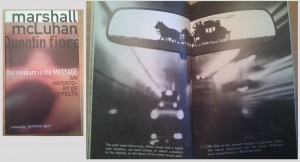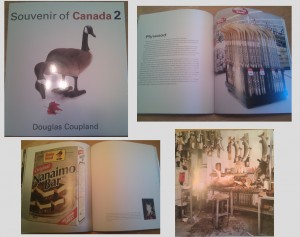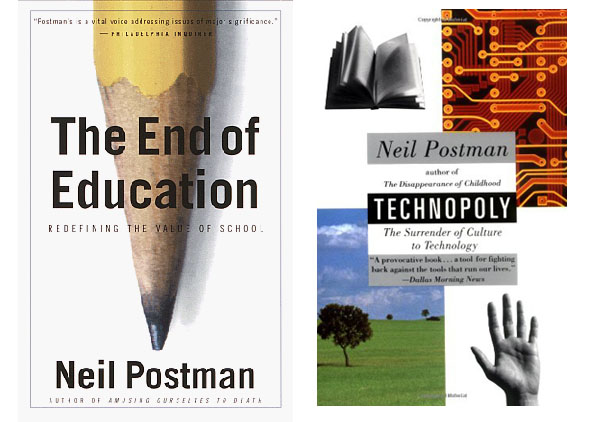On Saturday, I attended my first ever Ed Camp at Garibaldi Secondary School in Maple Ridge. Ed Camps are often called un-conferences, in that they are similar to the more traditional professional development conferences teachers have attended for years, but have a less rigid agenda and are much more user-driven. The agenda is decided upon on the day of the event, and as far as I know, anyone can present or facilitate a discussion if they have a good idea. Think of it as a crowdsourced professional development day. For an overview of the process, watch this short video, and read a more thorough description of the day’s events here, on presenter Tyler Suzuki Nelson’s blog.
Rather than rehash all of the events of #edcampfv (as it was referred to on Twitter), I’d like to post some thoughts I had in response to the discussion facilitated by Tyler concerning the issue of Knowledge vs Skills.
Loosely put, the Knowledge vs Skills debate concerns the issue of how much emphasis educators put on the content to be learned in comparison to the process and skills required to learn that content. During the one-hour session, there was some debate as to how we define knowledge, as well as what we actually mean by skills. In my opinion, the two are not at all mutually exclusive, and shouldn’t really be pitted against each other from opposite ends of the spectrum. For aren’t skills often just acquired knowledge of how to do something? If you’re a student and your teacher teaches a lesson on the basic Trigonometry functions (Sine, Cosine, and Tangent), and then stays after school to show you how to use your calculator’s SIN, COS, and TAN buttons, are you acquiring knowledge of the trig functions, skills to compute them, or a little bit of both? I understand the need to differentiate between knowledge and skills, and it certainly makes for an interesting discussion, but I don’t think it’s as black and white as many seem to imply. Like most seemingly black-and-white distinctions in life, it turns out there’s much more grey.
In the digital age, the grey area of the definitions and uses of knowledge, memory, and intellect is more murky than ever. Countless times I’ve heard from students, colleagues and friends alike, “If I can Google it, why should I memorize it?” and while as a smartphone early adopter and Android fan I can relate, I worry about the dangerously slippery slope this may lead us down. If all of our memories become externalized, what will our brains be good for? I’m not exactly worried about this generation or even the next (okay, maybe I am a little bit), but thinking slightly longer term and wondering what the Googles, Wikipedias, and Twitters mean for our long-term futures, centuries down the road. Keep in mind that Google, Wikipedia, and Twitter are just 13, 11, and 5 years old, respectively.
I think we need to be aware that knowledge is more of a process, and not just a thing. Sure, we can Google anything we want and find answers, but do we really understand where it came from or what it means? Simply equating knowledge with facts removes the process and history of the accumulation of knowledge from the equation, ignoring the shoulders of giants we’ve slowly been building upon. In The End of Education, Neil Postman calls this history of learning and knowledge the Great Conversation, illustrating the importance of tapping into the dialogue by quoting Cicero (p. 124): “To remain ignorant of things that happened before you is to remain a child… What is a human life worth unless it is incorporated into the lives of one’s ancestors and set in a historical context?”
I think that by relying on the instant information of the digital age, we run the risk of losing much of the process that our ancestors have developed in refining and acquiring knowledge. We need to be careful not to equate information, which is little more than a message comprised of symbols, with knowledge, which is much more all-encompassing and ultimately more valuable.
Postman goes on to explain the importance of the process of education and the evolution of knowledge, and why we must acknowledge the role our ancestors played in its accumulation and development:
“When we incorporate the lives of our ancestors in our education, we discover that some of them were great error-makers, some great error-correctors, some both. And in discovering this, we accomplish three things. First, we help students to see that knowledge is a stage in human development, with a past and a future. Second, we acquaint students with the people and ideas that comprise “cultural literacy”—that is to say, give them some understanding of where their ideas come from and how we came by them. And third, we show them that error is no disgrace, that it is the agency through which we increase understanding.”
In a digital age, if students are taught that knowledge is what Google tells them it is, where’s the room for error? Are we aware of where the knowledge—or more aptly—the information, came from?






